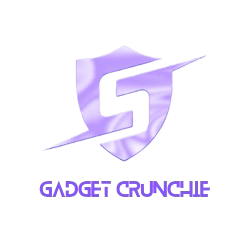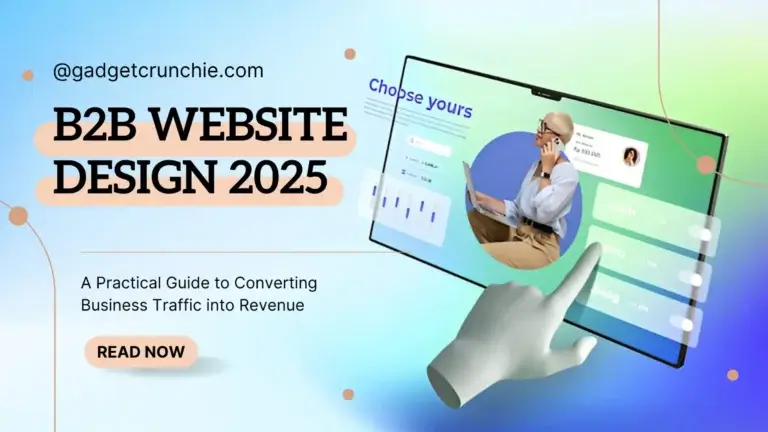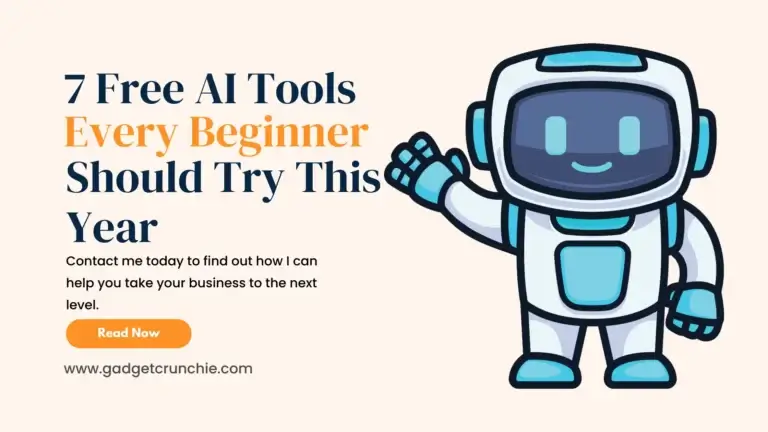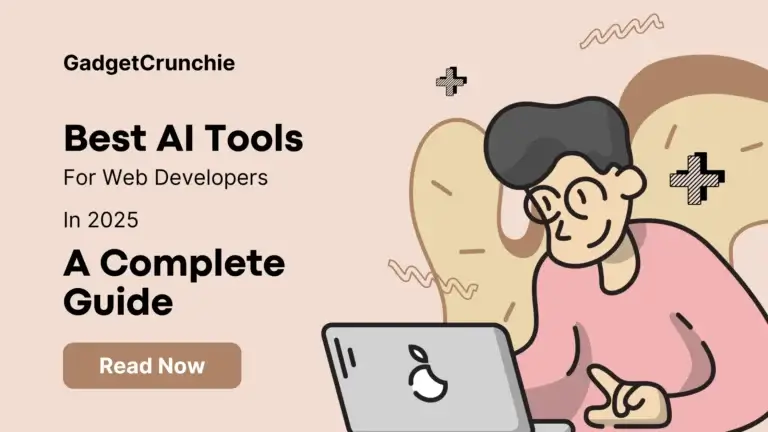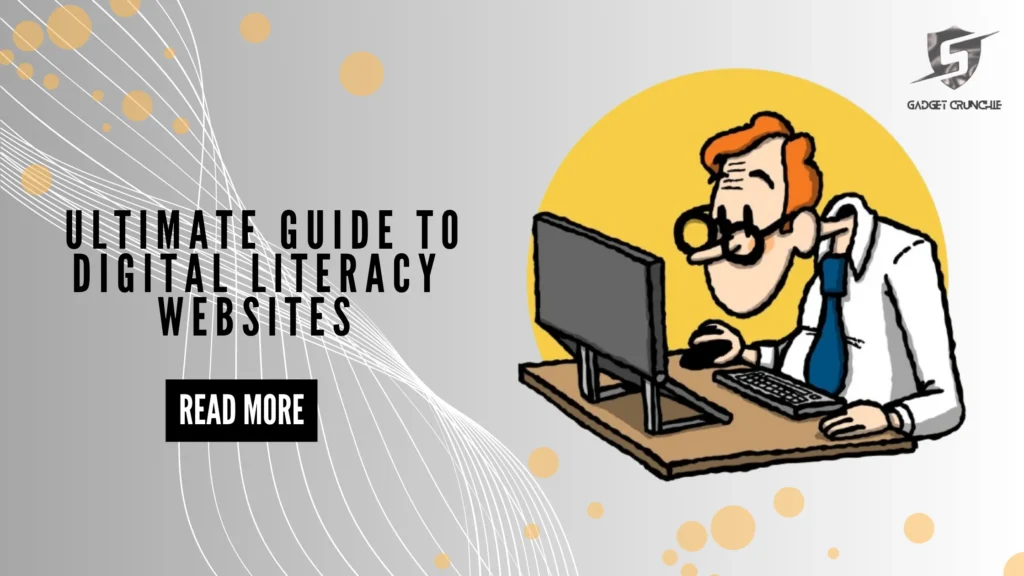
Remember the last time you tried to help a relative set up a video call, only to be met with confusion over “the blue icon with the ‘f'”? Or the moment you realized a new software at work required a skill set you just didn’t have? In our rapidly evolving world, the ability to use technology isn’t just a bonus; it’s a fundamental part of navigating daily life. Digital literacy has become as crucial as reading and writing. But where do you even begin?
The internet is overflowing with information, but finding the right, trustworthy digital literacy websites can feel like searching for a needle in a digital haystack. That’s where this guide comes in. We’ve done the heavy lifting for you, curating a comprehensive list of over 30 of the best online digital literacy resources and tools.
Whether you’re a complete beginner, a parent looking to guide your child, a teacher shaping young minds, or a professional aiming to stay ahead, this article is your roadmap. We’ll break down the top free digital literacy courses, interactive platforms, and essential digital literacy tools to empower you or someone you know with confidence in the digital age.
“To Learn more about the latest tech news and gadgets, visit our blog, or if you are interested in our expertise of what we offer, then do check out our services.”
1. What is Digital Literacy, and Why is it a Non-Negotiable Skill Today?
Before we dive into our curated list of the best digital literacy websites, let’s get crystal clear on what we’re talking about. Digital literacy isn’t just about knowing how to send an email or use a smartphone. It’s a multifaceted skill set that encompasses:
In short, digital literacy is about using technology effectively, safely, and responsibly. It’s the difference between being a passive consumer and an active, empowered participant in the digital world. The consequences of low digital literacy are real—from falling for online scams to missing out on job opportunities and feeling isolated in an increasingly connected society.
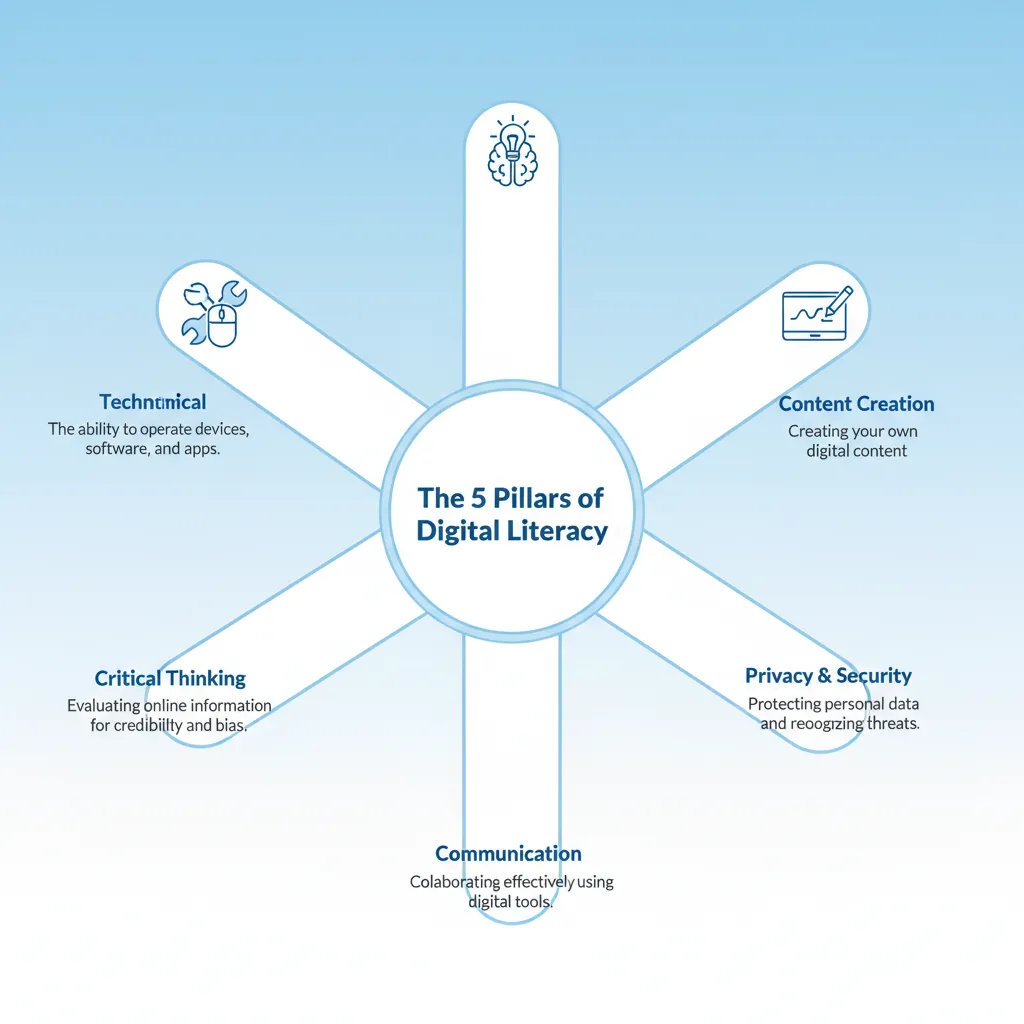
If you’re looking for the Best Car Charger with Retractable Cord for yourself or for Your loved one, then don’t miss our Review. Click Here.
Fast charging, Organized Cables, and Durability the ultimate pick in 2025.
2. Finding the Right Starting Point: A Guide to Our Top Digital Literacy Websites
The beauty of the internet is that there’s a learning path for everyone. To make this guide as helpful as possible, we’ve categorized the best digital literacy websites and tools based on who they’re designed for. Feel free to jump to the section that best fits your needs:
3. For Absolute Beginners & Building Foundational Skills
This section is dedicated to those who are taking their first steps into the digital world. These digital literacy websites are patient, clear, and assume no prior knowledge.
GCFGlobal: A Goldmine of Free, Easy-to-Understand Lessons
For well over a decade, GCFGlobal.org has been a cornerstone of free online education, and their digital literacy section is arguably one of the best online digital literacy resources available. Its strength lies in its simplicity and breadth.
Learn My Way: Practical Skills for Everyday Life
Developed by the Good Things Foundation in the UK, Learn My Way is one of the most user-friendly digital literacy websites, focusing on the practical skills people need to use online services confidently.
Digital Learn: Video-Based Learning for Easy Absorption
If you learn better by watching, Digital Learn is an excellent resource. This site, backed by the Public Library Association, hosts a collection of video-based tutorials.
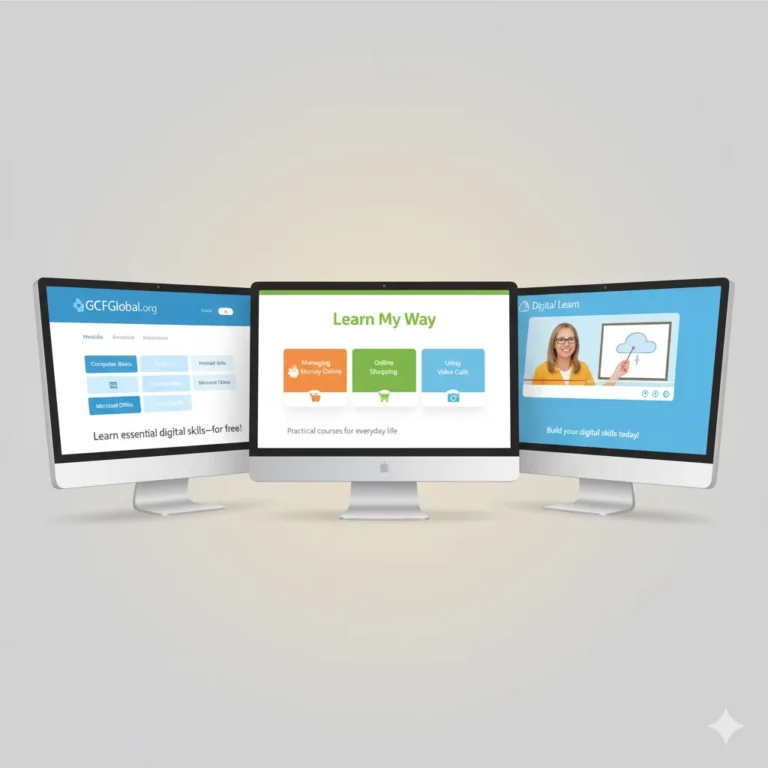
4. For Students, Teachers, and the K-12 Classroom
Instilling strong digital citizenship and skills in the next generation is critical. These digital literacy tools and platforms are designed to make learning engaging and age-appropriate.
Common Sense Education: The Leader in Digital Citizenship
When it comes to teaching kids how to be safe, responsible, and critical thinkers online, Common Sense Education is the undisputed leader among digital literacy websites. Their resources are used by schools worldwide.
Google’s Be Internet Awesome: Learning Through Play
Google offers this fantastic collection of free digital literacy courses designed to help people grow their careers or businesses online, making it one of the most valuable digital literacy resources for professional development.
BBC Bitesize – Computing and Digital Literacy
The BBC has a long history of producing high-quality educational content, and their Bitesize platform is a treasure trove for UK curriculum subjects, including Computing, making it one of the most reliable digital literacy resources for students.
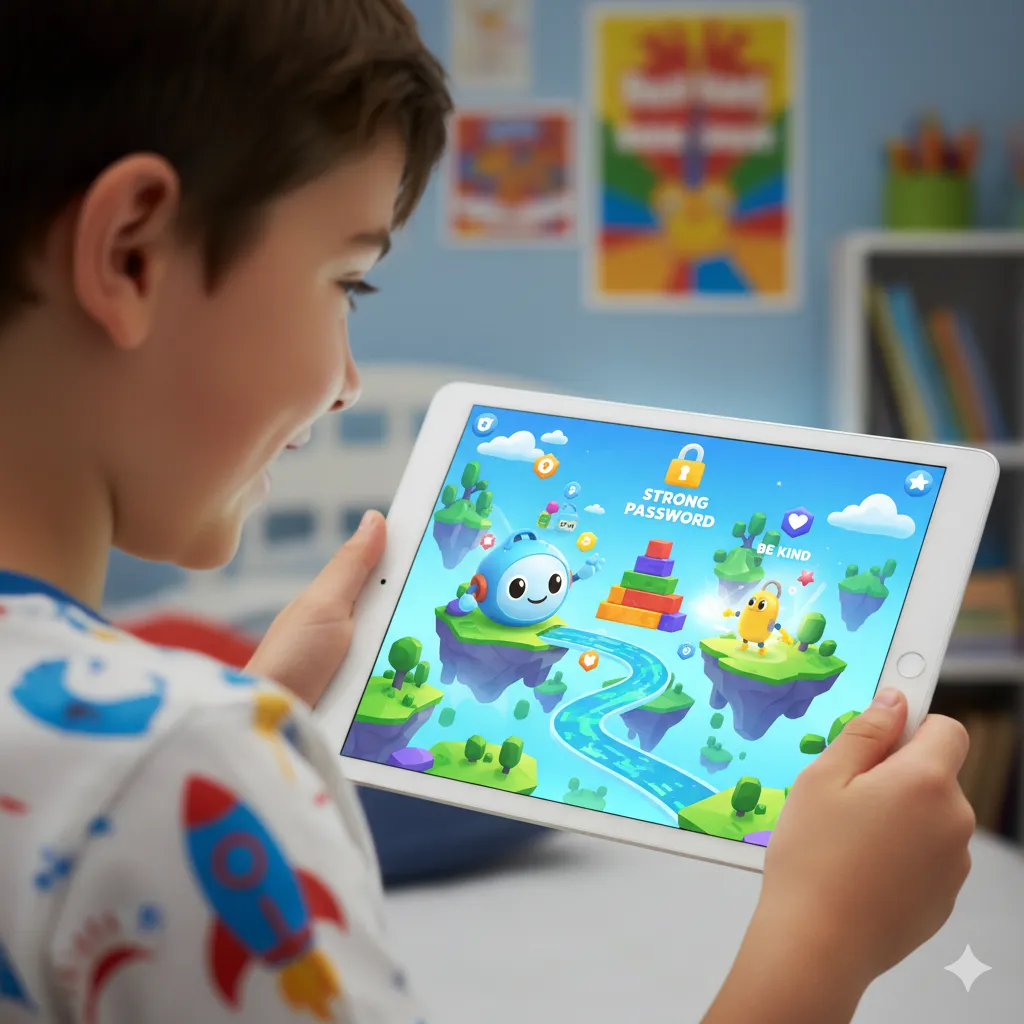
5. For Job Seekers and Upskilling Professionals
In today’s job market, specific digital skills are often a prerequisite. These digital literacy websites focus on the tools and competencies needed to thrive in a modern workplace.
LinkedIn Learning: A Comprehensive Professional Skills Library
Formerly Lynda.com, LinkedIn Learning is a subscription-based service that offers thousands of high-quality video courses taught by industry experts.
Google Digital Garage: Master the Fundamentals of the Web
Google offers this fantastic collection of free digital literacy courses designed to help people grow their careers or businesses online.
Microsoft Learn: Build Skills with Microsoft Technologies
If your workplace runs on Microsoft products, this is the place to go. Microsoft Learn provides tailored learning paths for their entire ecosystem.
6. For Building Deeper Technical and Creative Skills
Ready to move beyond consumption and start creating? These digital literacy tools and platforms teach the languages of the web and digital content creation.
Codecademy & freeCodeCamp: Learning to Code, Interactively
Understanding the basics of how software is built is a powerful aspect of digital literacy. Both these platforms offer hands-on coding experiences.
Canva Design School: Democratizing Graphic Design
Digital literacy isn’t just about code; it’s also about visual communication. Canva has become a go-to tool for creating professional-looking graphics, and their Design School is a fantastic digital literacy resource for anyone looking to build these essential skills.
7. For Critical Thinking, Privacy, and Online Safety
Being technically skilled is one thing; being savvy and safe online is another. These digital literacy websites focus on the “street smarts” of the digital world.
MediaWise (by Poynter Institute): The Fact-Checking Authority
In an era of misinformation, learning to discern fact from fiction is a survival skill. The Poynter Institute, a renowned journalism school, runs the MediaWise project.
Stay Safe Online (National Cyber Security Alliance): Practical Security Tips
This organization provides expert, easy-to-understand advice on how to protect yourself and your data online, making it one of the most crucial digital literacy resources for personal security.
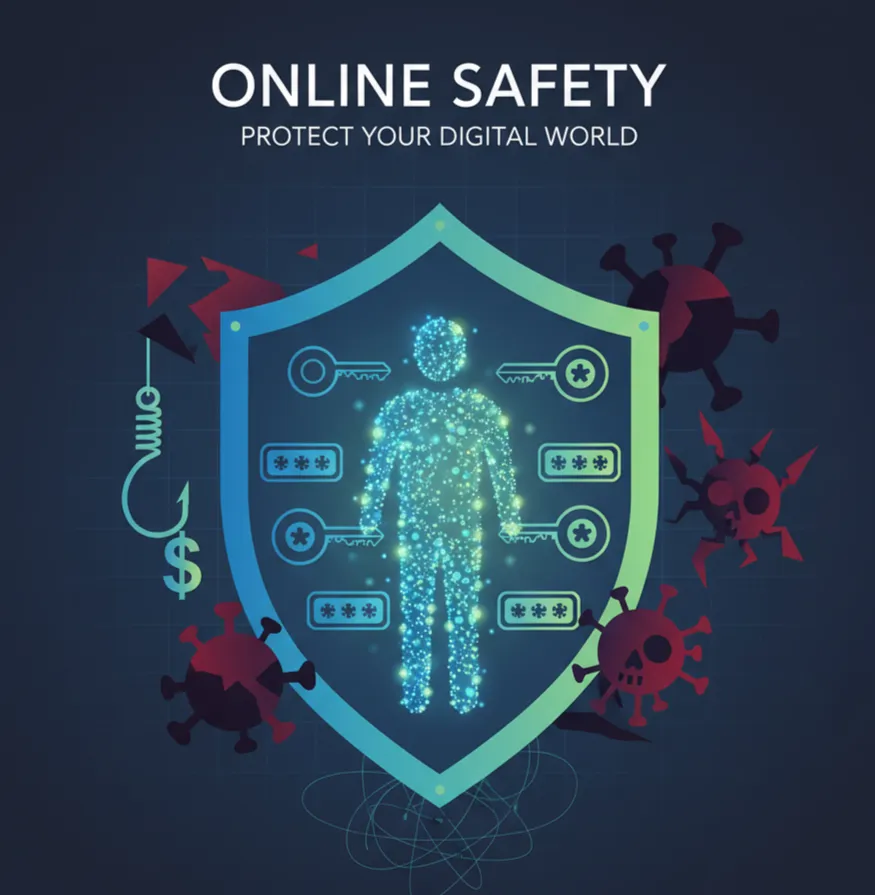
The Ultimate List: 30+ Digital Literacy Websites and Tools at a Glance
Here is a quick-reference table summarizing our top picks for digital literacy websites.
| Website/Resource Name | Primary Focus | Cost | Best For |
| GCFGlobal | Foundational Skills | Free | Absolute Beginners, Older Adults |
| Learn My Way | Practical Everyday Skills | Free | Beginners, Community Learners |
| Digital Learn | Video-Based Tutorials | Free | Visual Learners, Library Programs |
| Common Sense Education | Digital Citizenship | Free | K-12 Teachers, Students, Parents |
| Google Be Internet Awesome | Gamified Safety Learning | Free | Elementary & Middle School Students |
| BBC Bitesize – Computing | Curriculum-based Learning | Free | Middle & High School Students |
| LinkedIn Learning | Professional Software Skills | Subscription (Free via some libraries) | Career Advancers, Professionals |
| Google Digital Garage | Digital Marketing & Business | Free | Job Seekers, Small Business Owners |
| Microsoft Learn | Microsoft Product Skills | Freemium | Office Workers, IT Professionals |
| Codecademy | Interactive Coding | Freemium | Aspiring Programmers |
| freeCodeCamp | Project-Based Coding | Free | Aspiring Web Developers |
| Canva Design School | Graphic Design | Free | Content Creators, Marketers |
| MediaWise | Fact-Checking & Media Literacy | Free | Everyone (combatting misinformation) |
| Stay Safe Online | Cybersecurity Basics | Free | Everyone (improving online safety) |
| Khan Academy | Broad Education (incl. Computing) | Free | Students of All Ages |
| EdX / Coursera | University-Level Courses | Audit Free / Certificate Paid | In-Depth, Academic Learning |
| Bento.io | Curated Coding Tutorials | Free | Developers Looking for a Learning Path |
| The Noun Project | Icon Library (Visual Language) | Freemium | Understanding Universal Symbols |
| FutureLearn | Social Learning Courses | Varies | Collaborative Learners |
| Digital.gov | Government Digital Resources | Free | Civic-Tech, Accessibility |
How to Choose the Right Digital Literacy Website for You?
With so many excellent digital literacy resources available, the key is to find the one that matches your unique goals and learning style. Ask yourself these questions:
Taking the First Step Towards Digital Confidence
The journey to digital fluency starts with a single click. The wealth of knowledge available on these digital literacy websites is truly transformative. Exploring these essential digital literacy resources can lead to a better job, safer online experiences, deeper connections with loved ones, and a more informed perspective on the world.
Don’t let the pace of technological change intimidate you. The digital literacy resources featured in this guide are right here, and they are more accessible than ever. Bookmark this page, pick one of these powerful digital literacy websites that resonates with you, and commit to exploring it for just 20 minutes today. That small action is the first step toward unlocking the full potential of the digital world for yourself, your family, or your students.
To Learn more about the latest tech news and gadgets, visit our blog, or if you are interested in our expertise of what we offer, then do check out our services.
want to get in touch with us? — DM us at our Instagram Profie.
